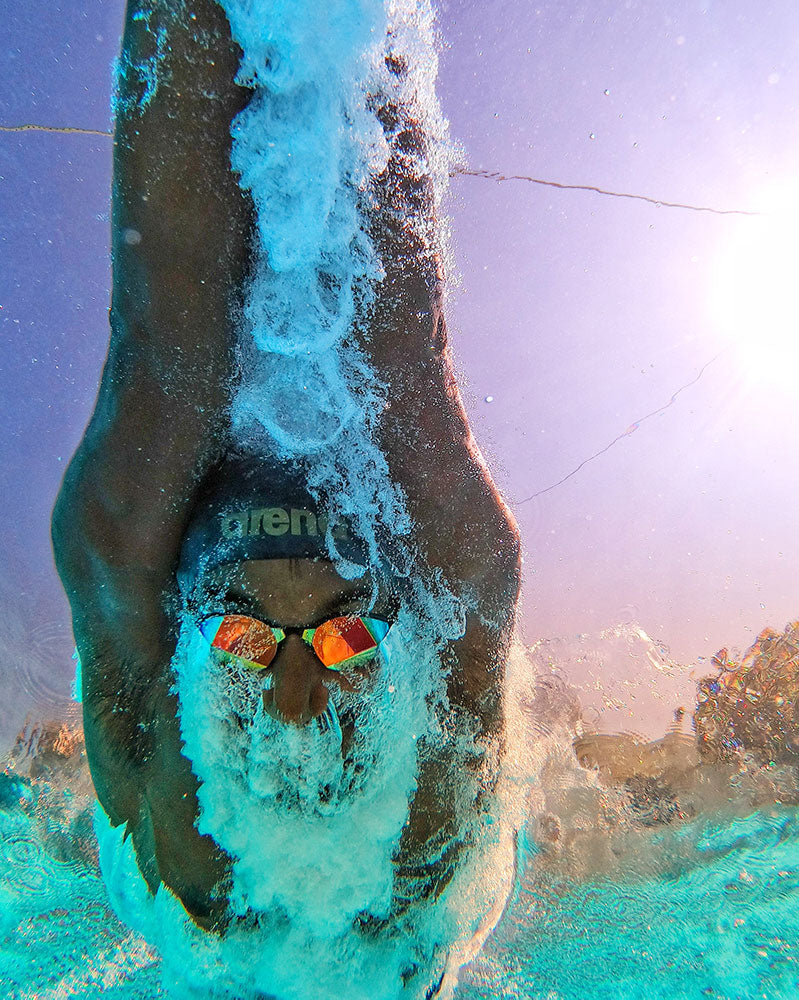A New Age Of Swimming: An Interview With Likith Prema
With his unmatched agility and compelling approach to sport, Likith Prema has been a competitive swimmer for the past 18 years. He earned a bachelor’s in Psychology from Jain University in Bangalore, and unlike many other athletes in India, he received a once-in-a-lifetime opportunity to leave his home country for elite swimming in South Africa.
For more than a decade, Prema accumulated countless awards and achievements, representing India at the 2019 world championships in 50m and 100m breaststroke races, as well as competing at the South Asian Games where he won four gold medals.
Having grown up with a fear of swimming as a result of outdated coaching practices, Prema believes there is a clear need for change in the Indian sports curriculum which he feels needs a full U-turn to make his beloved sport enjoyable for future young athletes.
This is his story.

TM5: Tell us about the moment you were introduced to swimming for the first time. What brought you to the beginning of your journey?
LP: My parents were never into any sports. One day we came across a nearby pool and they pushed me in. I had no idea what I was doing and my parents didn’t know either – it was a completely random encounter.
Until I was 14, I learned to swim through fear. The swimming scene in India is very underdeveloped and coaches rely on old practices, like mileage, no creativity, no technique, and ingraining fear into students.
At one practice, a foreign coach came in from South Africa and did some workouts with us. During this practice, I performed really well. I was the fastest under 18 breaststroke swimmer at the age of 15 and they decided they wanted to sponsor me from a private company that funds athletes to improve their performance. I was 15 when that happened, and I went to South Africa at the age of 16.

TM5: Were your friends, family and coaches supportive of your move? What thoughts went through your head as you arrived in SA?
LP: I was very anxious. I had never been around foreign people before, and coming from a small family, I didn’t know what to expect. When I arrived I was being polite to everyone, saying yes and no to everything they said. Having said that, I was really excited and went without any expectations.
I was really grateful to my parents for letting me leave the country – the general mindset of Indian parents is to go into the education field, become an engineer, or something stereotypical. My friends and family were pleased and supportive but the coaches were not, they thought I was abandoning them. But my parents knew it would be the best opportunity for me.

TM5: What were the swimming facility and coaching structure like in SA?
LP: The coaching structure was different. The standards were totally different. In India, swimmers have a half-hearted mindset and after some time people go back into their field of study. In South Africa, everyone there wanted to pursue swimming as a career and achieve a medal – the swimmers and the coaches made it possible.
Even though I had a fear of swimming, I didn’t have negative energy. In my head, I was always excited for the workout.
TM5: We heard that you used to train without goggles – the water gets pretty chlorinated. Why did you train without them?
LP: In India, it’s normal to swim without goggles. I trained without them since I was young. In South Africa, I only used goggles for training and warm-ups. When I go really fast, I consider it my ‘fifth gear’ – it’s like a switch inside me – when I go fast, I go without goggles.

TM5: Now you’ve been introduced to TheMagic5 goggles, how do they make you feel when you train?
LP: Completely different, in every positive kind of way. They are the most comfortable goggles I have ever worn and I actually use them to work out. While I am still fearful of using goggles when I’m in fifth gear, they make exceptional swimming equipment.
“You need to be trustful and loyal to yourself and if you love something, go for it”
TM5: Where is the craziest place you have swum before? How did each one make you feel?
LP: In the coastal Mangroves regions of India, me and some friends went to a private beach that is known as the home where turtles lay eggs in January and February. It’s known for wildlife – sharks, manta rays, and sea otters.
We swam 1km out from the beach and I noticed something next to me broke the surface and pushed its snout out. The wildlife conservationist we were with immediately told me to get back in the boat with him. Turns out it was the largest sea otter in South Asia – 5 feet long in total – a huge white color and we all thought it was a manta ray. They are very curious creatures.
Times like these are what makes a good story, right? Being there, being fearful but having an amazing story to tell.
Want to hear more from Likith, go follow him on Instagram.

To #FollowTheJourney of TheMagic5 athletes, click here to discover their stories.


